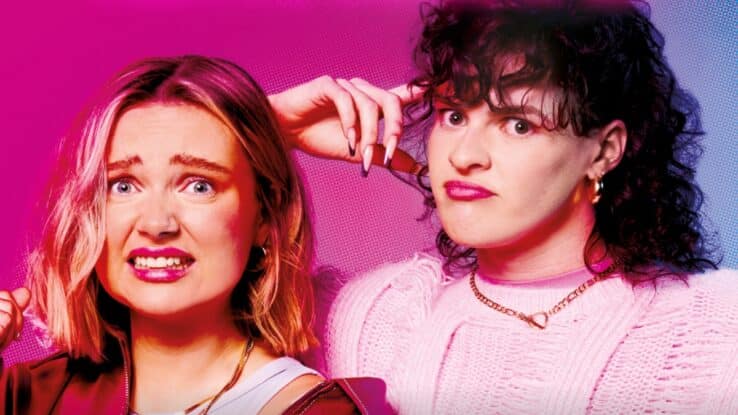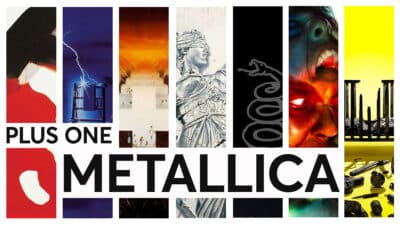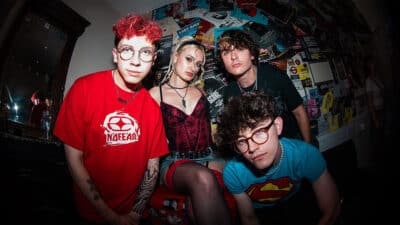Theatre

Interview
“In our heads, Six was this fun and silly show”: Toby Marlow and Lucy Moss
The writers of Six talk about their new musical Why Am I So Single? and the pressure to follow up on a hit
It’s fairly safe to say that Six, the pop musical about Henry VIII’s wives, was and still is a phenomenon. Written by Cambridge University students Toby Marlow and Lucy Moss for presentation at the Edinburgh Fringe, Six was a fresh, creative take on what a musical could be, reimagining the six wives as a girl group putting on the ultimate pop concert for their fans. About eighteen months after premiering at the Fringe, the show made its West End debut.
It was a dizzying ascent for Marlow and Moss, who went from student writers to big names in the industry in a remarkably short amount of time. With their brand-new musical Why Am I So Single? debuting in the West End this month, we sat down with the duo to talk about the success of Six, the pressure to follow up, and why the pitfalls of dating are deserving of their own West End show.
Where did this project start?
Moss: Basically, in 2018 we went away on a writing retreat to try and write another show. We were like, it has to be this really interesting, cultured thing. We basically got a day into the retreat and Toby’s like, “Wait, how are you? What’s going on with you?” Basically from that conversation, after the first day, we went, “Maybe this is actually what we want to write about.” This small, quote-unquote ‘unimportant’ story about friendship and loneliness.
How did you go about approaching a topic that might have seemed ‘small’ on paper and turning it into a West End musical?
Marlow: It’s really interesting, because that kind of is a tension that’s acknowledged within the show itself. There’s two things going on, and one is that they’re spending an evening trying to figure out why they’re single, and the other is that the characters are musical theatre writers and they have to come up with something big and important to write a musical about. They have this scene where they’re like, “Musicals are about big, important, huge things,” but all they keep talking about are their pathetic little dating lives. That’s not big or important. But they go through this journey of realising that this thing that doesn’t seem important – it’s not an epic love story, or a huge quest or anything like that – actually does feel very important to them. So I think how we went about tackling it was just to acknowledge that tension and make a joke out of it.
Was that what you both were feeling, that the next thing you did had to be something big and important?
Moss: I think so, yeah, having accidentally written a show that became much bigger than we ever thought. We never intended it to go beyond the Edinburgh Fringe and our friends performing it. The shadow of ‘what next’ was looming.
Marlow: In our heads, Six was this fun and silly show. The foundation of it was things that we cared about history, like Renaissance history and reframing historical narratives that have always been looked at under a very patriarchal lens. But when it became a publicly consumed thing, it was defined as this very ‘important’ show, which I think is where that pressure came from of, “Oh, we’re important writers who write important things now.”
Has the enormity of Six and everything it’s become really sunk in yet?
Marlow: No! You have those moments of really zooming out and trying to grapple with how big of a thing it is and how many incredibly talented people are working on the show every day in various parts of the world. It’s really mind boggling and just really cool. There are moments every now and then when I see something that’s really wild. Whereas before it was quite overwhelming, now I think I’m able to enjoy the cool parts for what they are.
Do you think that dating now is harder than it’s ever been?
Marlow: Well, back in the 60s, when I first got on the scene… (laughs) I don’t know, I think it just changes.
Moss: My very boring theory that someone’s probably thought of already about the apps is that there being a sanctioned space for flirting almost makes any other space feel like not the space for it, so that organic connection when there wasn’t a designated option of ‘This is where you meet people’. We talk about this in the show as well, the idea that meeting someone in real life is like a fairytale.
I also think the show is so much about friendship. People are choosing to get married, not get married, but there are so many options in life. That idea of having your friends and those friends being your family rather than needing to get married… I think the show hopefully is trying to speak to the common experience of living with friends later, where your friends are taking on such an important, emotional role in your life.
You kind of touched on it there, but what attitudes towards dating or dating experiences were really important for you to include in this show?
Moss: To me, it’s when a friend tells you they’ve got some gossip and you’re like, “Oh my god, tell me everything. I’m going to drink in this gossip and it’s going to revive my skin and change my life.” I think genuinely, the joyful parts as well as the tragedy of singledom were so important for us to include in this show, because that’s so much of my experience. Being on a bad date and thinking, “I cannot wait to tell Toby this story.”
Marlow: Also just what the experience of dating, and talking about dating, and being vulnerable romantically brings to the surface. There’s nothing like a romantic interaction, whether it’s one from the past or a potential one from the future, or a lack thereof constantly or an overwhelming pursuit of it constantly, all these different things, to bring up all this crap. The show does get into the deeper question beyond, “Ugh, why am I so single?” to “Wait, why do I feel so single? What’s really going on here?”
What do you hope people feel when they leave the theatre?
Moss: Something we thought about a lot whilst writing it is that we really want people, the second the show ends, to pick up their phone and text their friend saying, “Oh my god, I love you so much.” We want them to feel reassured and uplifted that they aren’t alone and that they have all this bountiful love in their life.
Marlow: We want this show to be for anyone who has a friend like that. People who are in their twenties and are on the dating scene, or people who have been married for the majority of their life – it’s for anyone who has, outside of anything romantic, those friendships that have sustained them through all sorts of things.









